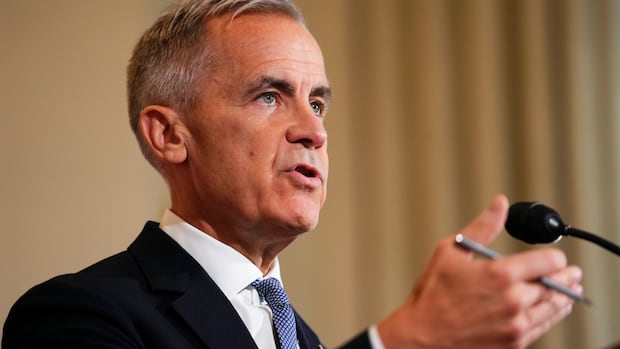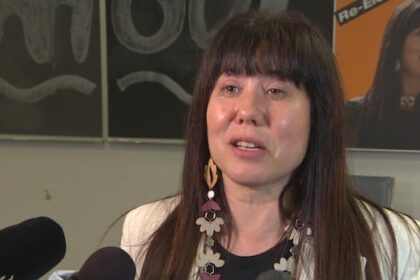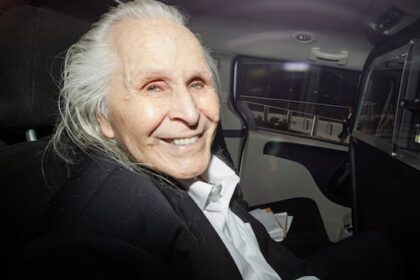During last spring’s federal election campaign, Prime Minister Mark Carney declared himself a fan of Quebec musical artists Coeur de Pirate and Rock et Belles Oreilles, stating in the same breath that French is at the heart of Canadian identity. Since his election, however, the language has held a more modest place in his speeches.A comprehensive analysis by Radio-Canada reveals that less than one-fifth of the content of the prime minister’s speeches since he was elected has been in French.Radio-Canada analyzed Carney’s 59 speeches and news conferences from April 29 — the day after the federal election — to Sept. 14, the day before the House of Commons returned.Carney spoke for 402 minutes in English compared to 83 minutes in French — about 17 per cent. The proportion drops to 13 per cent during events abroad. For example, when the prime minister announced the list of major projects of national interest on Sept. 11 in Edmonton, 25 minutes of his speech were delivered in English. He spoke for less than four minutes in French, mainly about the Port of Montreal expansion project. Former PMs spoke more FrenchAccording to experts, the data collected shows a decline in the use of French compared to former prime ministers. The former governor of the Bank of Canada and the Bank of England chooses English more systematically than his predecessors.Official Languages Commissioner Raymond Théberge said it is “desirable” for the prime minister to speak in both languages equally.“The prime minister’s bilingualism is not only a skill, but also a powerful symbol of Canadian identity and linguistic equality,” the commissioner said in a written statement sent to Radio-Canada. “Addressing the population in both languages recognizes and promotes these values.”Commissioner of Official Languages of Canada Raymond Théberge said equal use of both French and English would be ‘desirable.’ (Sean Kilpatrick/The Canadian Press)Speeches and addresses preceding press briefings are generally carefully prepared by the Prime Minister’s Office.Radio-Canada excluded the prime minister’s responses to questions from journalists from its calculation since the amount of French used generally depends on the number of French-speaking reporters present.A source who worked in former prime minister Justin Trudeau’s government said a minimum of 20 per cent French was required when Trudeau spoke at international events.This proportion rose to a minimum threshold of 30 per cent for speeches delivered in English-speaking regions of the country, and to 80 per cent when he was in Quebec.An employee in the communications department ensured that this proportion was respected, according to the source, who believes that Carney’s team should try to “push” for more French to be included in the prime minister’s statements. Former prime ministers Stephen Harper, left, and Justin Trudeau both spoke more French in public than Carney has so far in his mandate. (The Canadian Press)Former Conservative prime minister Stephen Harper — an anglophone like Carney — usually began his speeches in French even when he was abroad. Current Opposition Leader Pierre Poilievre also usually begins his press briefings with a statement in French.The Conservative leader’s Quebec lieutenant, Pierre Paul-Hus, said the prime minister should aim for equality between the two official languages.“Deliberately choosing to speak less than a fifth of the time in French is not acceptable for a country like Canada,” he said. “Out of respect for Quebecers and francophones in Canada, it is essential that a Canadian prime minister speak both languages equally, especially in speeches.” Bloc Québécois House leader Christine Normandin and Conservative Quebec lieutenant Pierre Paul-Hus both criticize the share of French used in Carney’s speeches. (Radio-Canada)Bloc Québécois House leader Christine Normandin believes Carney’s limited use of French in his speeches is “symptomatic” of an overall decline in the use of French in Parliament. “It is often joked that there are two official languages in the House of Commons: English and simultaneous translation,” she said. “What message does that send to his troops if he himself doesn’t use French that much?”Defending the prime ministerIn an interview, Minister of Official Languages Steven Guilbeault defended the prime minister, saying his private meetings with Carney are conducted almost exclusively in French.“In recent months, he has surrounded himself with a French-speaking chief of staff and deputy chief of staff,” said Guilbeault, who is also Carney’s Quebec lieutenant. “I think the prime minister is making a lot of effort.“I suspect that we will see an improvement in the coming months … I think he wants to do better on this issue.”WATCH | Carney rates his spoken French as a 6/10 during campaign:Carney rates his spoken French as a ‘6/10’In his interview on ‘Cinq chefs, une élection,’ Liberal Leader Mark Carney said he’d give his spoken French skills a six out of 10. He said he’s ‘far from perfect,’ but loves the language and promised to improve to an eight or nine out of 10 by the end of a potential term.The Prime Minister’s Office said in a statement that Carney “addresses Canadians in both official languages throughout his work on behalf of Canadians in government and Parliament, and he will continue to do so.“The new Government of Canada will always defend the French language and culture, as well as the essential institutions that protect them, such as Radio-Canada.”Historical examplesFor Martin Pâquet, a professor of Canadian history at Université Laval, the Official Languages Act of 1969 made it important for prime ministers to be bilingual, even without formally requiring it.“It was systematic with Pierre Trudeau, Brian Mulroney, Jean Chrétien and Paul Martin. Even Stephen Harper wanted to establish a balance between French and English,” he said.The historian does not believe that Carney’s more limited command of French is an obstacle to greater use of the language in his speeches.“Jean Chrétien never hid the fact that he had an accent in English. It was part of his persona.… It’s part of Stephen Harper’s persona to have slightly broken French, but that didn’t prevent him from showing his authentic side,” he said.“Voters and citizens identify with someone who makes an effort to reach out to them.”Setting an exampleGeneviève Tellier, a professor at the School of Political Studies at the University of Ottawa, points out that francophones outside Quebec are concerned about possible budget cuts that would affect minority communities — and are looking for a strong message that the French language matters to the prime minister.”With 17 per cent, we don’t really feel like we’re getting that strong message,” she said. According to Statistics Canada, 22 per cent of Canadians say that their first official spoken language is French. However, Tellier said the two languages should be treated equally.“We need parity. If we are a bilingual country, then French and English should be on an equal footing.”Tellier said Carney should show leadership by setting the bar higher for himself.“The people around us, our team, our ministers and the civil service will be more inclined to follow that example,” she said.Tellier believes that voters will likely not hold this against Carney, for now. “Everyone is focused on the issue of tariffs. The concern is the economy. We may be willing to put other considerations aside,” she said.But the issue could come to the forefront later in his term, and upset francophone voters if he doesn’t change his ways.“Then, it could catch up with the Carney government,” she said.
Wednesday, 4 Mar 2026
Canada – The Illusion
Search
Have an existing account?
Sign In
© 2022 Foxiz News Network. Ruby Design Company. All Rights Reserved.
You May also Like
- More News:
- history
- Standing Bear Network
- John Gonzalez
- ᐊᔭᐦᑊ ayahp — It happened
- Creation
- Beneath the Water
- Olympic gold medal
- Jim Thorpe
- type O blood
- the bringer of life
- Raven
- Wás’agi
- NoiseCat
- 'Sugarcane'
- The rivers still sing
- ᑲᓂᐸᐏᐟ ᒪᐢᑿ
- ᐅᑳᐤ okâw — We remember
- ᐊᓂᓈᐯᐃᐧᐣ aninâpêwin — Truth
- This is what it means to be human.
- Nokoma











